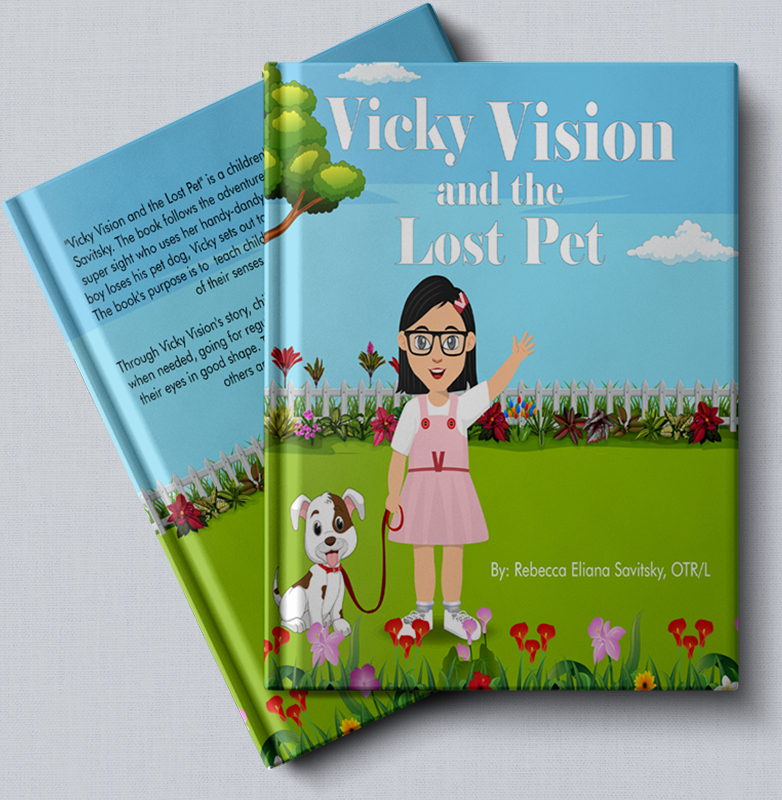Empowering Young Minds: The Impact of Positive Role Models in Children’s Books
Home > Blog

Children’s books have a unique way of imparting life lessons. They are more than just stories; they often serve as guiding lights, helping children understand the world around them. One such book, “Vicky Vision and the Lost Pet,” features a remarkable character named Vicky who serves as a positive role model for young readers.
This blog will explore the psychological impact of role models, the importance of creating characters children can look up to, and how Vicky Vision embodies these traits.
The Significance of Positive Role Models
Positive role models in children’s literature play a critical role in shaping a child’s development. They inspire children by showcasing good behavior, problem-solving skills, and empathy. Such characters can help children:
- Develop Positive Behaviors:
Children often mimic the actions of characters they admire. Positive role models can encourage qualities like kindness, perseverance, and honesty.
- Build Self-Esteem:
Stories featuring successful characters can boost a child’s confidence, showing them that they, too, can overcome challenges.
- Encourage Learning and Growth:
Characters who love to learn or seek out new experiences can inspire children to do the same.
In the case of “Vicky Vision and the Lost Pet,” Vicky exemplifies these attributes, making her an excellent role model for young readers.
Psychological Impact of Vicky Vision
Vicky Vision’s character has a profound psychological impact on young readers. Here are some ways she serves as a positive role model:
- Kindness and Empathy:
Vicky’s gentle approach towards the frightened dog teaches children the importance of kindness and understanding. This can encourage young readers to be more empathetic towards others.
- Responsibility:
Vicky takes her responsibility seriously, whether it’s her eye care or her mission to find the lost pet. This can inspire children to be more responsible in their own lives.
- Perseverance:
The story highlights Vicky’s determination as she searches high and low for the lost pet. This teaches children the value of perseverance and not giving up easily.
- Community Building:
Vicky’s actions not only help the boy but also set an example for her friends. She shows them the importance of taking care of their senses and helping others, fostering a community of helpers.
Creating Characters That Children Can Look Up To
Creating characters that children can look up to involves more than just making them likable. They need to embody qualities that children can aspire to and learn from. Here are some key aspects to consider:
- Relatability:
Characters should face challenges and experiences that children can relate to. Vicky’s need to wear glasses and take care of her senses are common issues many children face.
- Strengths and Weaknesses:
A well-rounded character has both strengths and weaknesses. Vicky is determined and kind but also faces challenges, making her relatable and human.
- Growth and Learning:
Characters who learn and grow throughout the story can inspire children to do the same. Vicky’s ability to find the lost pet and teach her friends about the importance of their senses shows her growth and willingness to learn.
- Positive Influence:
Ultimately, characters should have a positive influence on readers. Vicky’s actions and the lessons she imparts about eye care and community building serve this purpose well.
Reflecting the Message and Theme of the Book
“Vicky Vision and the Lost Pet” teaches the importance of taking care of our senses, especially our eyesight, and building a community of helpers. Vicky’s character teaches children valuable lessons that extend beyond the pages of the book:
- Eye Health:
By showing Vicky’s routine of taking care of her eyesight, the book emphasizes the importance of eye health. This can encourage children to adopt similar habits.
- Helping Others:
Vicky’s determination to find the lost pet highlights the importance of helping others in need. This fosters a sense of community and empathy among young readers.
- Role Model for Peers:
Vicky not only helps the boy but also influences her friends positively. This shows children that they, too, can be role models for their peers.
Final Words
Positive role models in children’s books have a lasting impact on young minds. Characters like Vicky Vision serve as guiding lights, teaching children valuable life lessons while inspiring them to be better individuals.
“Vicky Vision and the Lost Pet” beautifully encapsulates the themes of eye health, empathy, perseverance, and community building. By creating relatable and admirable characters like Vicky, authors can help shape a brighter future for children, one story at a time.